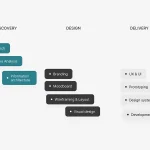
Digital investing and advice can be offered in 3 service models: advisor-centric, client-facing, and hybrid. Advisor-centric digital tools assist the advisor in providing advice to clients. They may have more features and functionality than their client-facing counterparts and are intended for investors who have expertise in financial markets and can make good investment decisions. This type of service model is increasingly becoming the norm in the industry, although it has not yet reached maturity.
Although investment advice can be overwhelming, there are many resources and tools to make it easier to navigate. While many investors can’t afford to consult a financial advisor on a daily basis, investing can become a more convenient and satisfying experience with the help of digital tools. For example, there are many apps and tools that can help a new investor make good investment decisions. These resources may be of interest to individuals with various levels of experience.
The US Department of Labor has issued a new regulation governing fiduciary duty, which will affect retirement plan advisory. Small investors will no longer be able to afford a fee-based advisor. Thankfully, digital investment services offer low-cost advice and can easily manage several small IRA accounts. Some of the best tools offer no-commission trading and other great conditions. Moreover, some of these tools provide you with a human advisor upon request.
Another benefit of digital investment and advice services is that it has no biases or distractions. These programs can handle thousands of clients at a time. Moreover, they can rebalance their portfolios daily and invest even small amounts. Moreover, investors will not have to wait for an advisor to come back to them with a report. And, in most cases, these programs are completely transparent. So, they are much more efficient than human advisors.
Investment Selection Module: This module will determine the type of investment portfolio the customer is interested in. The algorithm in this module explains why a particular investment is right for a particular customer. It also compares the investor’s portfolio with his or her profile. It will analyze market risk and diversification, and recommend a suitable investment. These features should be available in an Android-compatible platform. Regardless of what device the customer uses, Merrill Lynch’s mobile platform will provide them with a streamlined and modern experience.
A number of financial institutions are implementing a new model of investment advice, combining digital methods with investment expertise. These digital advisers use technology and algorithms to provide clients with quality advice for a fraction of the cost. They also offer discretionary advice through managed accounts. These services are especially beneficial for low-balance investors who can’t afford the fees of traditional advisors. Additionally, these advisers can offer transparency and accessibility. This makes them a useful investment solution for millennials who are on a budget.
The next step in advancing digital investing and advice is automating the selection of cash and securities accounts. Robo-advisers utilize algorithms to identify and understand investors’ preferences. They ask questions to create a model portfolio. Simplicated and comprehensive robo-advisers use demographic and behavioral data to tailor their recommendation to the individual investor. These algorithms are more sophisticated than ever. The more sophisticated robo-advisers even use AI and machine learning to create a unique profile for each investor.







